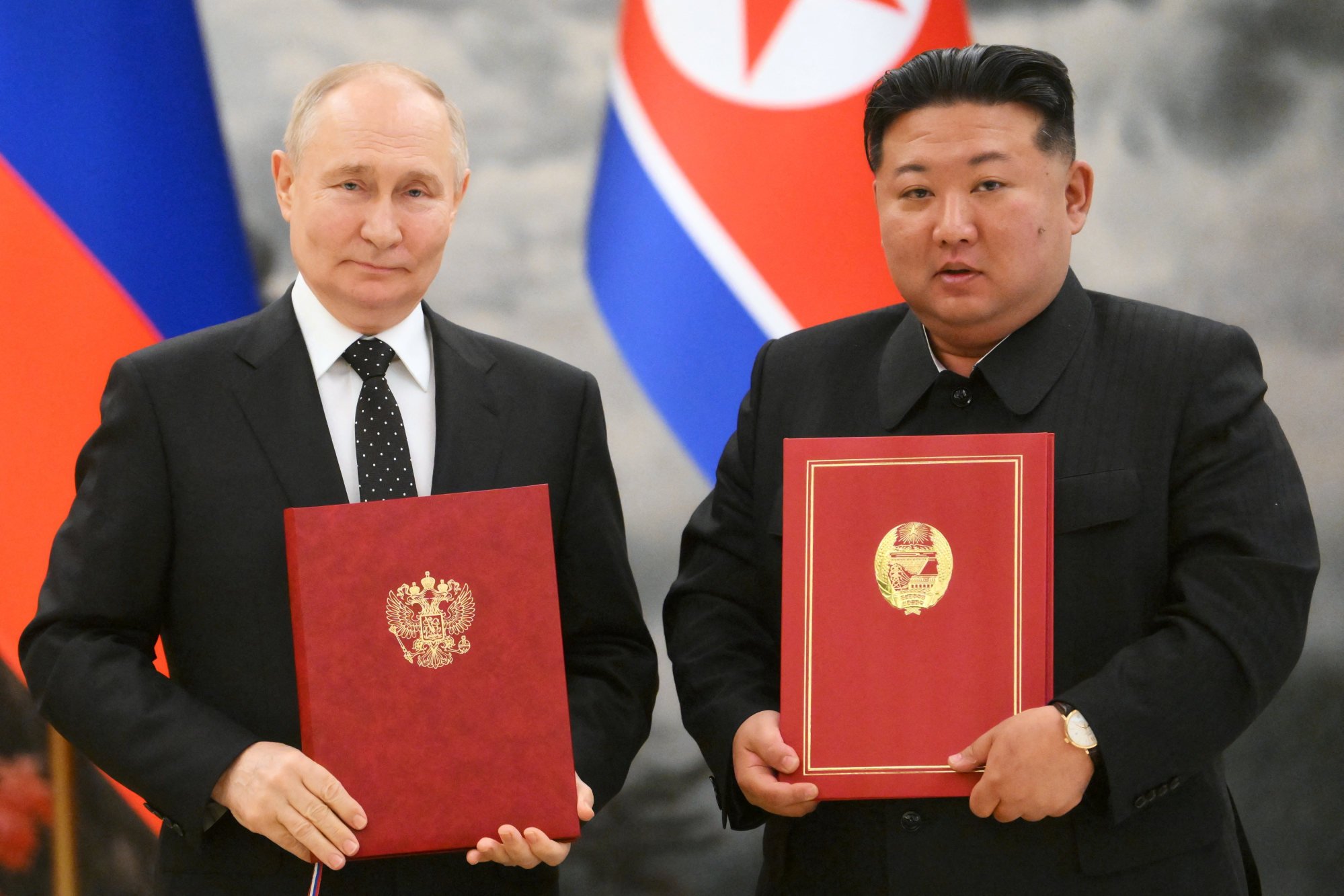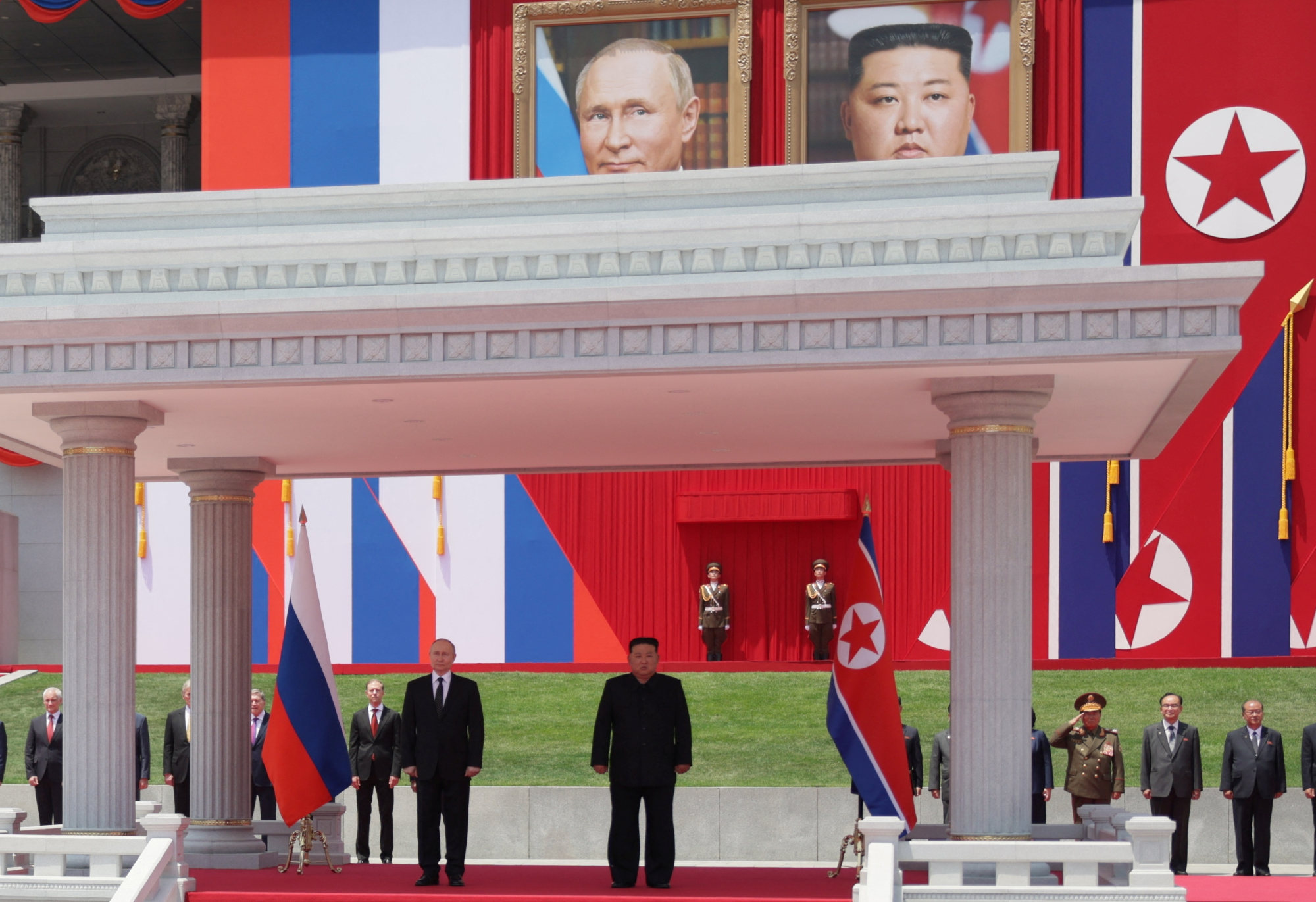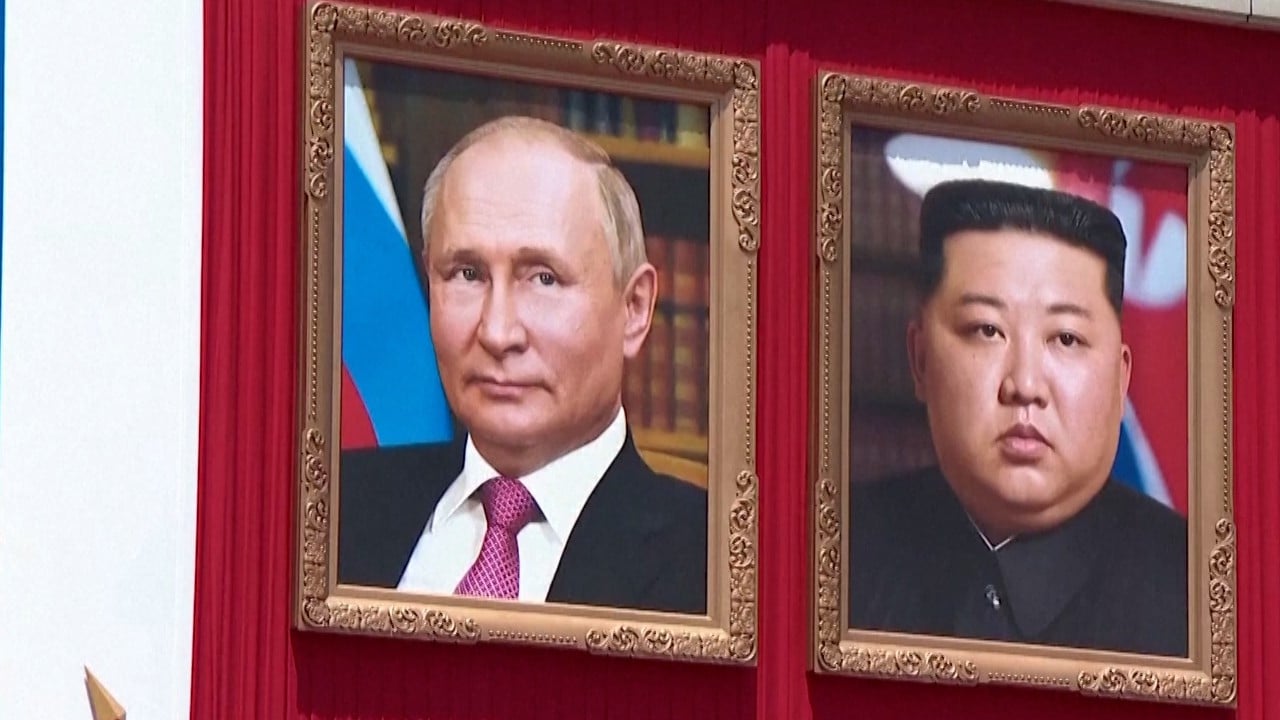“It is really a breakthrough document,” Putin said at a press conference in the North Korean capital, adding that it provided, “among other things, for mutual assistance in case of aggression against one of the parties to this treaty,” Russian news agencies reported.
Kim called the deal the “strongest ever treaty” signed between the countries and brings their relations to the level of an alliance, and would facilitate cooperation in various areas including politics, economy, culture and military.
Russia and North Korea also signed agreements on cooperation in the fields of healthcare, medical education, and science, Russian state media reported, citing the Kremlin’s website.

The two countries have been allies since North Korea’s founding after World War II, and have drawn even closer after Russia’s invasion of Ukraine in 2022 isolated Putin on the global stage.
Putin also said Russia “does not rule out military-technical cooperation with the DPRK in connection with the treaty that was signed today,” referring to the North by its official name.
Kim called Putin the “dearest friend of the Korean people” and said his country “expresses full support and solidarity to the Russian government” over the war in Ukraine, which has triggered rafts of UN sanctions on Moscow.
Putin, in turn, thanked his host Kim – himself under a decade-long UN sanctions regime over his banned weapons programmes – saying Moscow appreciated the “consistent and unwavering” support.
Putin said the two heavily sanctioned countries would not tolerate Western “blackmail”, and that UN sanctions on North Korea should be reviewed.
“I am noting that the indefinite restrictive regime inspired by the US and its allies at the UN Security Council towards the DPRK should be reviewed,” Putin said.
Putin arrived in Pyongyang before dawn on Wednesday to be greeted by Kim on a red carpet where the pair embraced and smiled.
They then attended a welcoming ceremony in Kim Il-sung square, featuring a military band and mass synchronised dancing, after which Putin invited his host to visit Moscow.
The summit, which included a lengthy one-on-one chat between the leaders, was their second meeting in a year.
Kim took his bulletproof train to Russia’s far east last September for a summit with Putin at a space port.
Putin’s visit, which is likely to reshape decades of Russia-North Korea relations at a time when both face international isolation, is being watched closely by Seoul and Washington, which have expressed concern about their growing military ties.
The reaction from China, the North’s main political and economic benefactor and an increasingly important ally for Moscow, has been muted.
The two Koreas have remained technically at war since their 1950-53 conflict, and the border dividing them is one of the most heavily fortified in the world.

Tensions on the Korean peninsula are at their highest point in years, with the pace of both Kim’s weapons tests and combined military exercises involving the United States, South Korea and Japan intensifying in a tit-for-tat cycle.
The Koreas also have engaged in Cold War-style psychological warfare that involved North Korea dropping tons of rubbish on the South with balloons, and the South broadcasting anti-North Korean propaganda with its loudspeakers.
This week’s visit was a way for Putin to thank the North “for acting as an ‘arsenal for autocracy’ in support of his illegal invasion of Ukraine,” said Leif-Eric Easley, a professor at Ewha University in Seoul.
It was also part of Russia’s drive to secure “strategic space” in Northeast Asia to counter US influence in the region, Seoul-based Institute for National Security Strategy’s senior research fellow Kim Sung-bae said.
“This intention is further evidenced by Putin’s visit to Vietnam,” he said, with the Russian leader set to fly to Hanoi after his trip to the North.
Reporting by Agence France-Presse, Associated Press, Reuters


